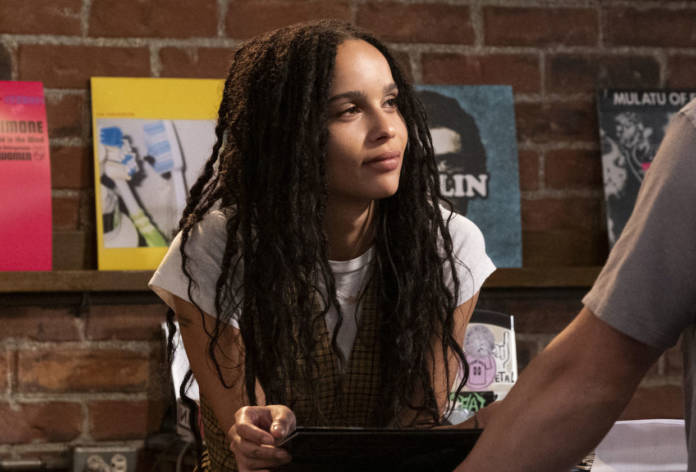Welp, I was wrong. HULU may actually be an acronym for stupid.
As we move with GREAT hesitation these days—government mishandled pandemics and all—the need for Black Voices reminds me of one of my fave De La Soul recs: Stakes Is High.
We mourned publicly over the murder of George Floyd and Breonna Taylor, marched for justice, burned shit down in disgust, trying to be heard by a larger populace. We removed racist statues, bringing newfound sensibility about Black Lives to a section of America that finally could not look away.
From ESPN to CNN, Black trauma was on display, non-stop, on every breaking news segment. Colin Kaepernick, taking a knee protest against the deaths of African-Americans at the hands of police, even went from villain to hero in certain parts of America, overnight. (And now we see the leaders of the sports industrial complex rush to put athletes in harm’s way, fulfilling billion-dollar television contracts to distract—er, entertain—the growing amount of unemployed Americans.)
All of this took place after HULU’s High Fidelity series, starring Zoë Kravitz, premiered on Valentines’ Day this year. Feels like a decade ago huh? Last week the streaming platform canceled the show after one season. Kravitz starred as Rob, a pop culture-obsessed record store owner in Crown Heights, Brooklyn, who allows personal baggage over several relationships, to disintegrate her for one year.
This gender-switched, queer-friendly modern retelling of the Nick Hornby novel, formerly adapted into a 2000 film—starring John Cusack and Kravitz’s mother, Lisa Bonet—garnered an 86 percent positive rating on Rotten Tomatoes and received a warm reception from fans and critics alike. Finally, Zoe Kravitz, a Black actor, playing a bisexual lead, gets the vehicle to show us what we always suspected. She IS a star. “Big Little Lies” can go kick rocks. You root for this character and actor putting themselves out there in a raw, funny, and vulnerable way. Kravitz owns the “Fruity Pebbles monologue” space.
Robyn aka Rob owns a record store in Crown Heights that has a diverse staff who can pop off at any moment in any direction of music. You may disagree with the takes, but the acumen cannot be disputed.
Don’t date anybody who likes Phish. Just saying. Unlike HBO’s “Girls,” this Brooklyn has Black and brown folk visibly cruising down Franklin Ave with great ease. “High Fidelity” was Written by Sarah Kucserka and Veronica West, the award-winning writers of “Ugly Betty,” and executive produced by Kravitz, who was in that writer’s room a lot.
It’s a huge loss right now for representation in a subject area that still seems stuck in the 1980s. Growing up, the only Black cultural critic I knew of talking about rock was JJ Jackson, one of MTV’s five original VJs. With all the waxing poetic I’ve had to endure by skinny white dudes, with suspect mustaches, riding fixed gear bikes, telling me, about Wu-Tang and J Dilla? Please. As my closest folks know. I LOVE BLACK PEOPLE SPEAKING ON ROCK AND ROLL. We made that.
So kicking it with cool ass Zoë/Rob over the course five hours, cruising around BK in Hawaiian leisure shirts, long brown leather coat, and jeans? Watching the daughter of Lenny Kravitz—who had a hard time back in the day getting his rock-oriented music video’s played on BET—lighting fools up on how Fleetwood Macʻs Tusk is better than Rumours. “Tiger King” be damned, “High Fidelity” was streaming balm.
And it was a rare reboot that actually worked. Synthesizing cultural criticism from outliers—mostly a Black perspective—with action that we, being in quarantine, cannot take part in. Going to a dimly lit dive, sitting elbow to elbow, talking shit with your peoples about the impact Ariel Pink made on LA’s contemporary musical landscape or the genius-type Quincy Jones horn charts on Thriller, ESG bumping from over-worked speakers while sipping on cheap whiskey.
These things, we can’t have right now, combined with a disenfranchised brain trust of cultural identifiers, makes the loss of this High Fidelity worthy of all the upset comments on social media from fellow Black media stars Lena Waithe, Questlove, tessa Thompson, and of course Kravitz herself, who responded to cancellation, “It’s cool. At least Hulu has a ton of other shows starring women of color we can watch. Oh wait.”







